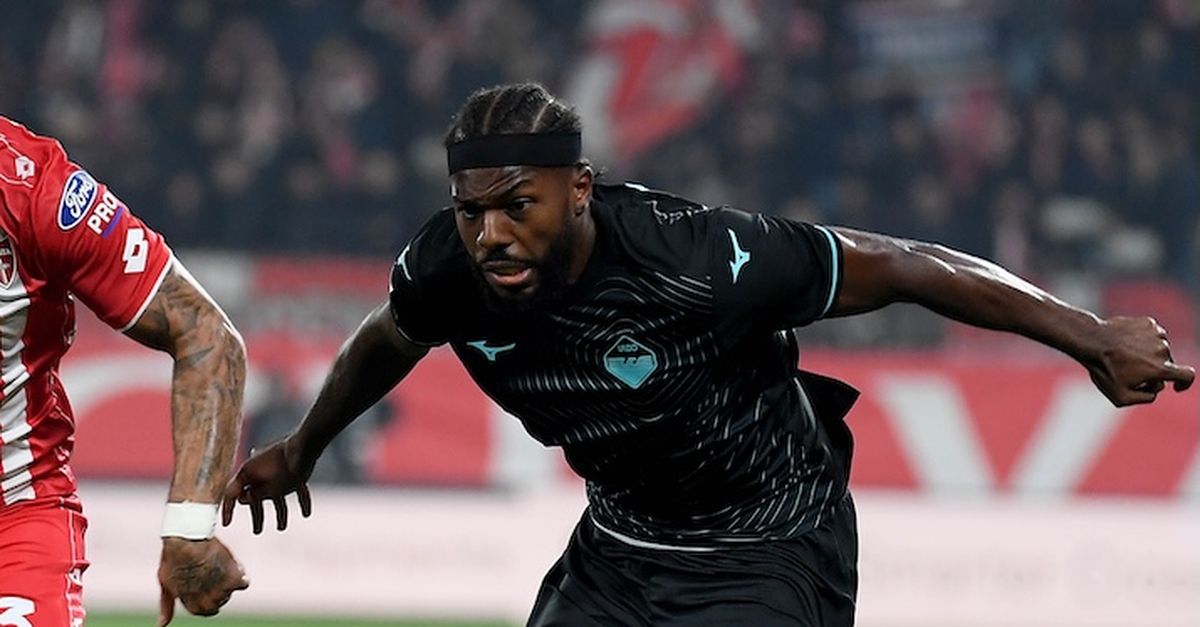News arrives on Lazio. This is what Fabio Rodia, coordinator of Lazio’s medical staff, spoke to ‘La Politica nel Pallone’ on Gr Parliament: “False alarm for Dia? From what we know I would say yes,…
News arrives on Lazio. So Fabio They give birthcoordinator of Lazio’s medical staff, on ‘La Politica nel Pallone’ on Gr Parliament: “False alarm for Dia? From what we know I would say yeswe are waiting for the player to return tomorrow so we can evaluate him and possibly include him in the group. We need to immerse ourselves for a moment in the reality of the continent in which the diagnosis was made, statistically these parasites are a little overestimated as often happens here with flu syndromes. It can happen that we tend to overestimate, many times in medicine it is better to make a pejorative diagnosis than a superficial diagnosis.”
Meanwhile, the conditions of Nuno Tavares need to be assessed. As reported by Lalaziosiamonoi, the Portuguese he would already be on his way back to Italy. Then his conditions will be assessed in view of the next matches with Lazio. In particular he would suffer from myalgia, a muscle pain in this case in the knee.
What steps should be taken to ensure accurate diagnosis and communication between medical staff when dealing with athlete injuries in a global context?
Interviewer: Good morning, thank you for joining me today on World-Today-News.com. My first question is about the recent health updates regarding the Lazio players, Diego Diaz and Nuno Tavares. Coordinator Fabio Rodia has reported that Diaz’s condition may have been a false alarm, and Tavares may be experiencing muscle pain in his knee. Could you please explain what this means for the team’s health situation moving forward?
Dr. Smith: Thank you for having me. Regarding Diego Diaz, it seems that the initial diagnosis may have been overestimated, and there’s no need for major concern about his health. However, it’s crucial to note that they’re still assessing the situation and waiting for further evaluation. As for Tavares, muscle pain can be a common issue for athletes, especially those who have recently recovered from an injury or overexerted themselves during training. It’s essential to monitor his condition closely to ensure he’s fully recovered and able to perform at his best in upcoming matches.
Interviewer: That’s an interesting perspective. What about the challenge of managing these types of injuries in a globalized world where players are constantly traveling and facing different healthcare systems?
Dr. Johnson: Indeed, it’s essential to consider the context in which these injuries are being evaluated. Different healthcare systems can have varying approaches to diagnosis and treatment, which can lead to miscommunication. It’s vital for the medical staff to communicate effectively with each other to ensure that the player receives the best possible care. Additionally, it’s crucial to acknowledge the importance of rest and recovery, especially for athletes who face intense pressure to return to the field quickly.
Interviewer: Moving on to the topic of myalgia, could you explain what this condition is and how it affects an athlete’s performance?
Dr. Rodriguez: Myalgia refers to muscle pain or aches, which can range from mild discomfort to severe debilitation. In the case of Tavares, it’s concerning that the pain is localized in his knee, as this joint is a crucial part of an athlete’s mobility and stability. Depending on the severity of the pain, it could impact his


